Movie Review – Citizen Kane
Principal Cast : Orson Welles, Joseph Cotten, Dorothy Comingore, Everett Sloane, Ray Collins, Agnes Moorehead, William Alland, George Coulouris, Ruth Warrick, Paul Stewart.
Synopsis: A reporter tracks down the people who were important to recently deceased newspaper mogul Charles Foster Kane in order to determine the meaning behind his last word: “Rosebud”.
**********************
It’s hard to know where to begin with a film as important, and amazing, as Citizen Kane. I’m hard pressed to name very many pre-1950 films that I actually enjoyed (The Man With The Golden Arm is usually top of my list, alongside The Wizard Of Oz), but Citizen Kane is a new, and utterly acceptable, entry into that list. What’s even more amazing to me, after watching the film and the accompanying Oscar-nominated documentary accompanying it on DVD, The Battle For Citizen Kane, is how the story behind the film is almost better than the film itself. A superstar media legend, aged only 24, creating a film based around the life story of a still-living newspaper magnate, and the stoush which eventuated, almost destroyed a movie studio, and ruined said media legends career in Hollywood for decades. Citizen Kane is a film about, and made by, people with distinctly strong personalities who refuse to give an inch, for better or worse. Almost analogous of its director, Citizen Kane was a bright shining comet slicing through the Hollywood firmament, before burning out in a blaze of negative publicity. What am I talking about, you ask? We’ll get to that in a moment, but suffice to say, Citizen Kane is a film-lovers film, the kind of movie which is essential viewing for anybody with a love of the medium. Appreciating Citizen Kane now, some 60+ years since its release, I can understand how younger, less historically minded film fans might not appreciate Citizen Kane’s often dated techniques, but for anybody with a passion for film, a genuine, deep seated understanding of the medium, this film is essential viewing.
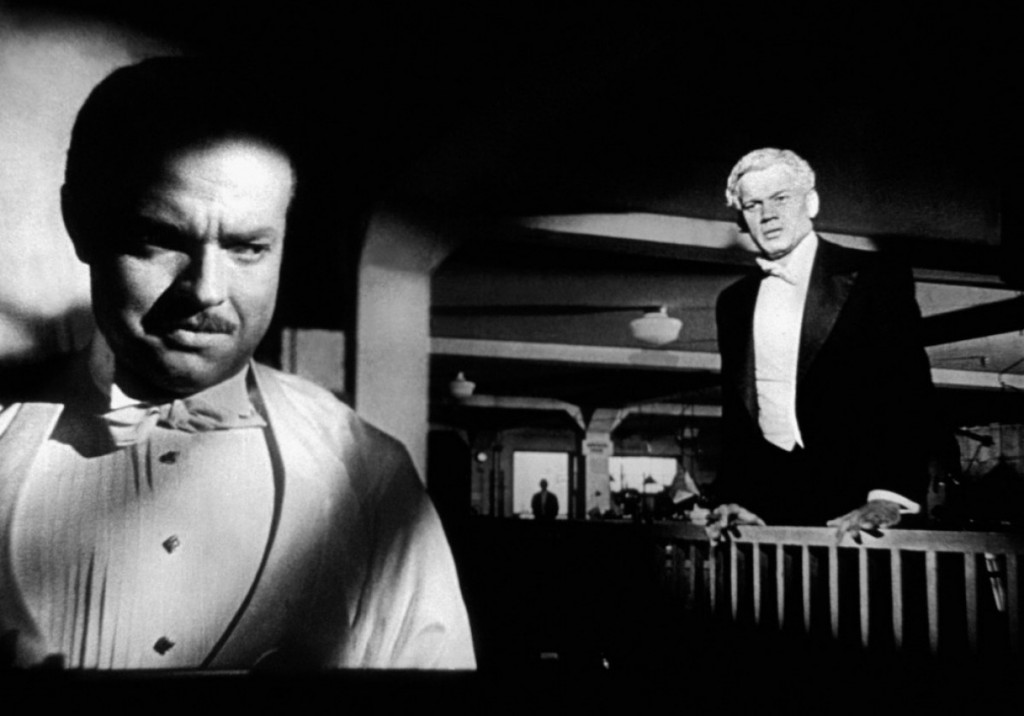
The film opens with the death of a man, who utters the word “Rosebud”, before slipping away. He lives in an enormous castle-like building, dark and foreboding and apparently unfinished. We then cut to a newsreel, showing the life and times of one Charles Foster Kane (Orson Welles), an American media magnate who took a little known New York Enquirer from the small-time to a major success, eventually owning a vast media empire across the country. A reporter (William Alland) is charged with a mission: to determine the meaning behind Kane’s last word on Earth, and sets out to interview those who knew him best: his best friend Jedediah Leland (Joseph Cotton), his second ex-wife Susan (Dorothy Comingore), among others. On this journey, we learn more about Kane the man; a driven, lonely, belligerent man who mistook his love for the people for the love of the people, and treated those he was close to cruelly and whimsically. His final days, eked out inside his massive Floridian retreat, Xanadu, seems a prison to those who live there, especially Susan, who leaves him after a forced period of indentured performances as an opera singer – and a poor one at that.
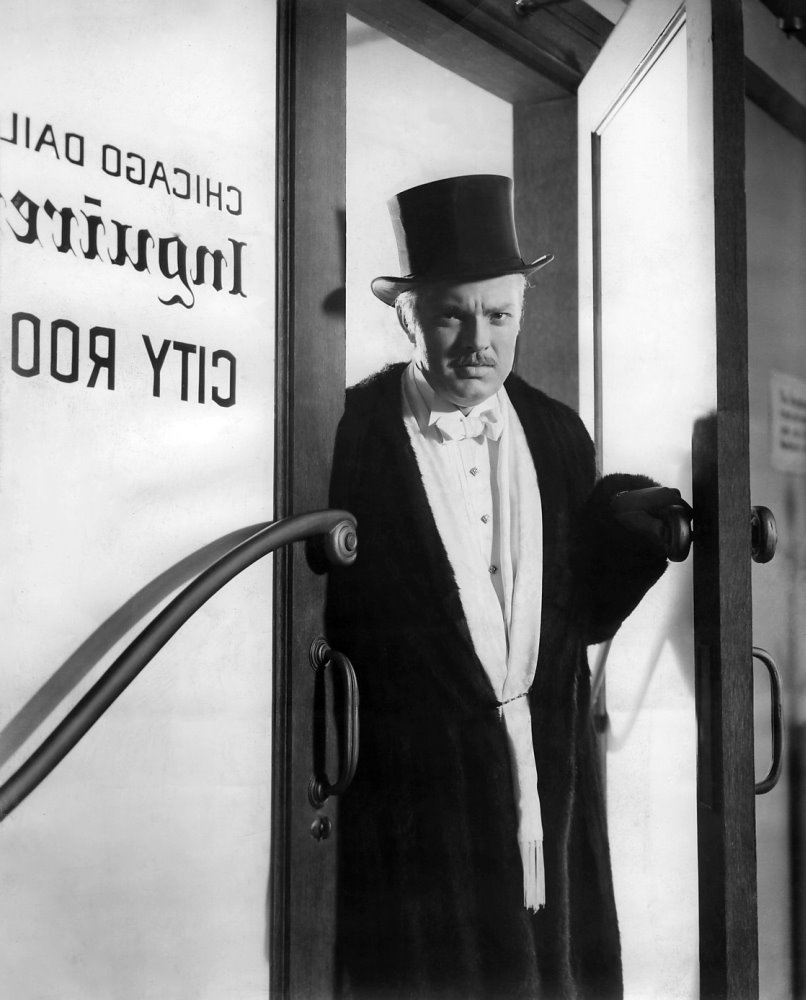
Orson Welles came to Hollywood fresh off the controversy and success of his now-infamous War Of The Worlds radio broadcast, in which he created a panic through the country when folks actually thought aliens had landed in a small town outside of New York. RKO pictures, one of the original Big Five studios during Hollywood’s Golden Age, gave Welles an unprecedented amount of control in his two-picture contract, including the near-unheard of “final cut” privilege, something no unproven, first time director was ever given. This bizarre contract, to direct two films for RKO, proved to be the near undoing of the studio, and virtually ruined Welles’ career afterwards. Welles teamed with legendary Hollywood screenwriter Herman Mankiewicz to write a script based somewhat loosely on the life story of newspaper magnate William Randolph Hearst, a man who took a little San Francisco newspaper to a major media empire during the early 1900’s. The character of Charles Foster Kane became the embodiment of Hearst; in fact, Kane could even be said to be something of a composite of both Hearst and Welles together – he was a man who believed his own press, thought himself to be unassailable thanks to a large, national platform from which to give his opinions, much like the aloof and often belligerent Hearst himself. The combination of both personalities was a potent mix, and the character truly does light up on screen. Welles set out to rile up Hearst as well, using various elements from the moguls life in the film – apparently, the term “rosebud” was actually the term Hearst used for his mistress’s private parts, his mistress being Marion Davies; while Hearst’s treatment of Davies was appropriated for the destructive way Kane treats his second wife, Susan. This was all done under the noses of the RKO studio heads, who, as part of Welles’ contract, were not allowed on the set to interfere – yet another concept Hollywood thought to be the studio’s greatest folly.
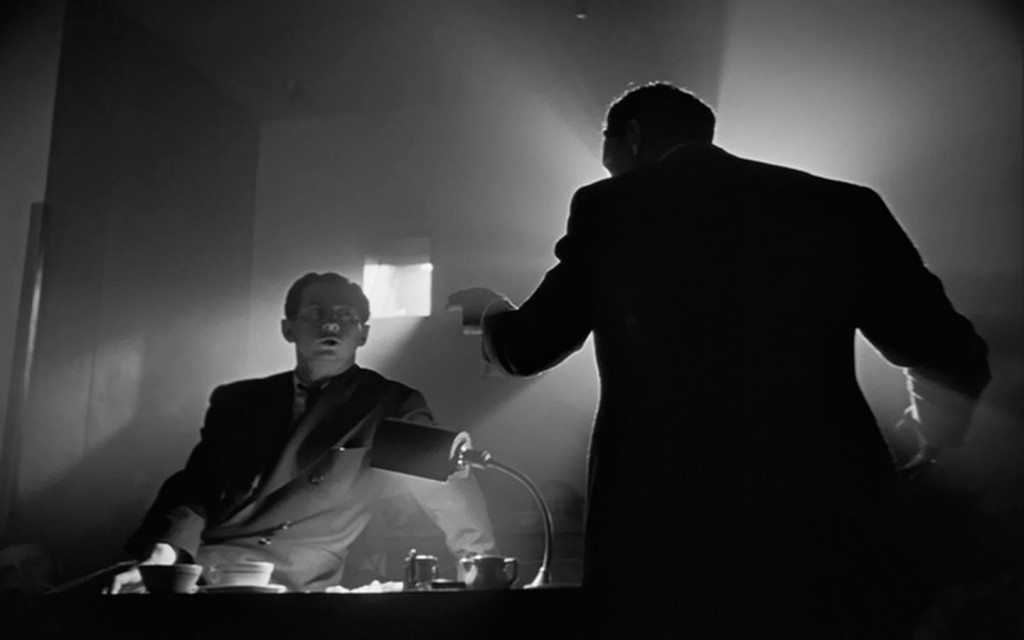
Once the film was completed, however, the battle wasn’t yet won. RKO Studios had a problem with Hearst refusing to advertise the film in his papers, and threaten to pull advertising for any cinema brave enough to show it – the end result meant that Kane had to be screened in an RKO owned cinema, resulting in lower than hoped box office returns. No Hearst newspaper carried a review of the film at all, meaning the reach the film had in the public eye was limited at best. To thwart the release of the film, Louis B Mayer, the head of MGM Studios, offered to buy the original negatives for nearly a million dollars (an enormous sum for the time) so they could be burnt, lest the wrath of Hearst bring down most of Hollywood! Yes, a film about a man who dies with Rosebud on his lips enraged the media magnate, and almost destroyed RKO Studios.
Controversy aside, Citizen Kane strides out of the shadow of Hearst and Welles with its supreme majesty intact. This is an amazing film in its own right – a film deserving of much of the kudos thrown its was since it became popular to enjoy it during the 50’s, after Hearst’s death had allowed the passing of time to ensure RKO (which folded in 1959) to bring it back to a new audience with the chance to see it minus any conflagration of personality. Whether it’s the “best film ever made” is, of course, a subjective statement, and I would argue that there might be more “enjoyable” films out there than this one, but for style, cinematography and the brazen, derring-do balls this film dangles on the screen, Citizen Kane might just be the “best made film ever”. Welles poured his heart and soul into the film, and along with Gregg Toland, produced a film of such stunning design and visual magnificence, it still remains jaw-dropping to this day. The camera angles and shot selection, from beneath-the-floor upwards shots of Kane’s post-election defeat, striding across the bullpen of his newspaper with a disgruntled fervor, to the wonderful deep-focus method Tolland played with during the shoot (deep focus has every aspect of each frame, be it foreground, mid-ground or background, in focus at the same time, traditionally a problematic way of shooting on film, due to technical limitations of the era) to the stunning use of shadow in the narrative to highlight various emotional beats in the film – Citizen Kane is a visualists dream to watch.
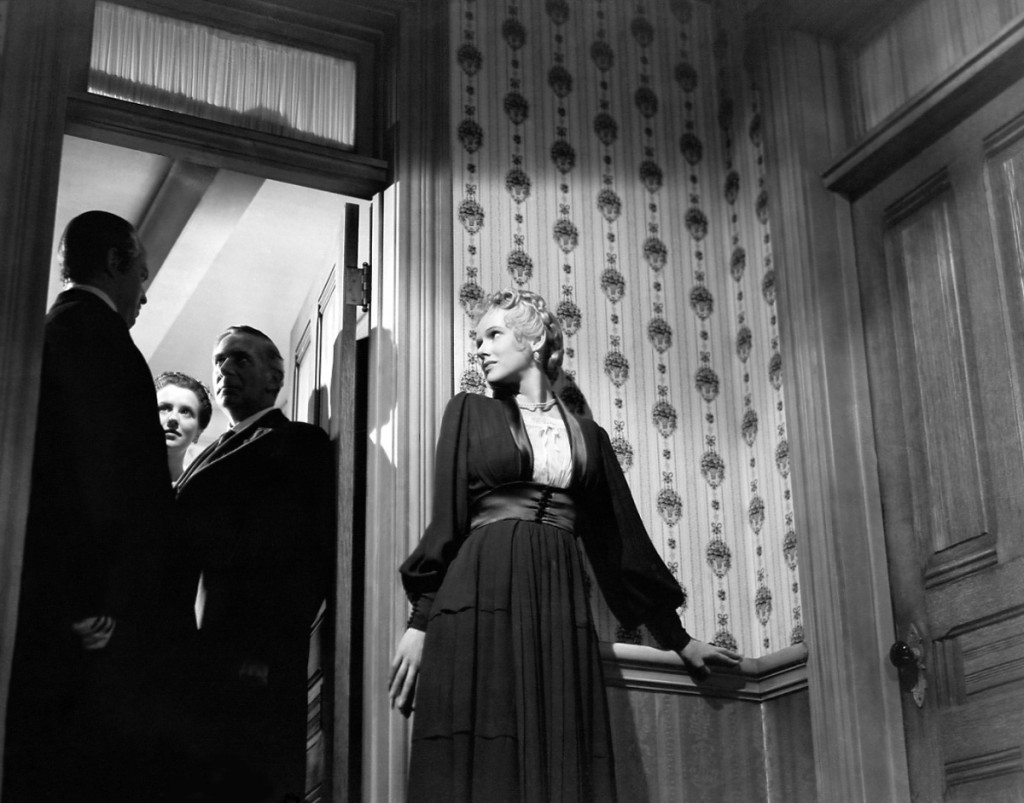
The thing that struck me the most profoundly was Welles’s use of lighting – or rather, the specific use of shadow, as I mentioned before. Faces and entire characters disappear into complete darkness, merely silhouettes on the screen, casting a menacing quality in each scene this occurs. This brave decision to have characters move in and out of the light, as if moving from some personal darkness into absolution, or perhaps into the glare of a spotlight, is wonderful to watch. Kane is a film in black-and-white, the stark contrast between the light and shade only serves to elicit more emotion from the viewer, and the exquisite cinematography used throughout the entire movie is a frame-by-frame masterclass in how to light a scene. If you don’t respect the story or the character, you will simply be unable to argue to the fabulous use of storytelling method Welles employed. Acclaimed director Robert Wise (who would go on to direct The Sound Of Music, The Day The Earth Stood Still, and West Side Story, among others!) was responsible for editing this film, and both he and Welles poured over the imagery they had to work with for a long time. The end result, though, is superb.
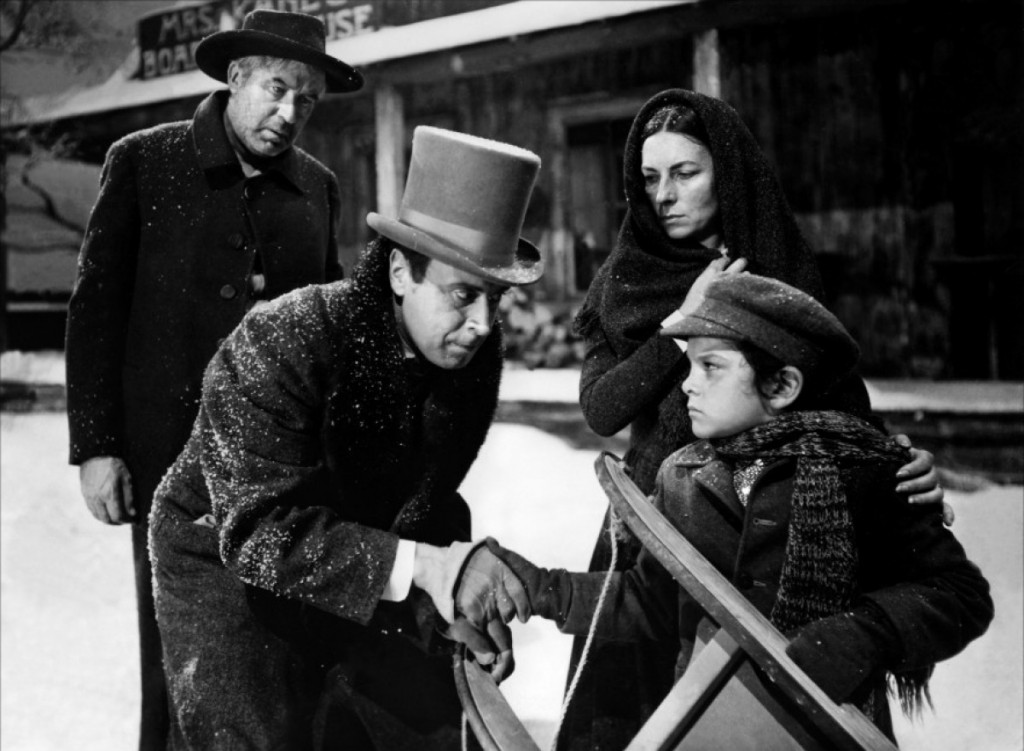
From a performance aspect, the entire cast does a superb job with their respective roles, and Welles gives them plenty of substance to work with. This isn’t a film of easy emotions – conflict and human damage occurs often and harshly here – and each major character has his or her own foibles (always wanted to use the term “foibles” in a pre-50’s film review!) which the audience will either appreciate, or they wont. Leading off, Welles, as Kane himself, is towering in the role. perhaps because of his involvement with the character from the screenplay writing with Mank, he literally becomes Kane in every respect, and his screen presence indicates just why RKO had so much faith in him in the first place. Welles sears the screen as one of cinemas most execrable people; Kane’s an asshole, plain and simple, and while the character might be ostensibly unlikable, Welles’s ability to inhabit the role so completely and generate a small amount of sympathy for him as a person, is superlative. Ably supporting him is Dorothy Comingore as the winsome, butterfly-soft Susan, Kane’s songbird second wife. Comingore’s character is a whiny, weak-willed woman, who’s downtrodden existence is cursorily dealt with by Kane. Susan isn’t a strong person, yet Comingore delivers the goods with regards to her character. Joseph Cotton is excellent as Kane’s best friend Jedediah, and although of all the major players in the piece his is the weakest, he still does a great job with what he’s given. Ruth Warrick, as Kane’s first wife, is solid as a rock, with a real emotional wallop when she discovers her husband is a cheating, lying bastard.
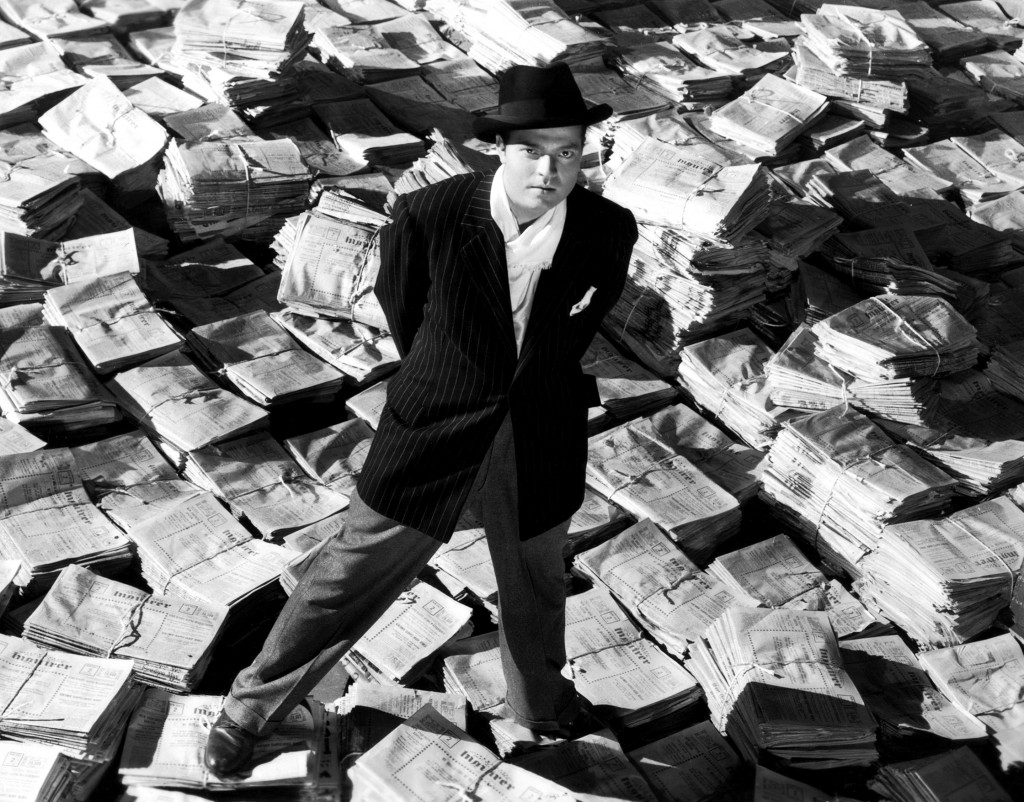
Citizen Kane isn’t a film without faults, though, although in saying that, all those faults are era-specific and in no way related to the intangibles such as character or story. No, perhaps the films biggest weakness is in some of its practical effects – the old-age make-up specifically. While the prosthetic make-up used for the character of Kane is actually pretty damn amazing, the ones used for the rest of the cast is a little weak in terms of realism. The most sour note in this regard is that of Jedediah’s make-up, which makes Joe Cotton look more like a patchwork leper than a real human. If this is all I can pick that’s dated with the film (aside from some of the now-obvious visual effects, matte work and double exposure shots) that pulls modern viewers out of the story, then this film does indeed hold up well, all things considered.
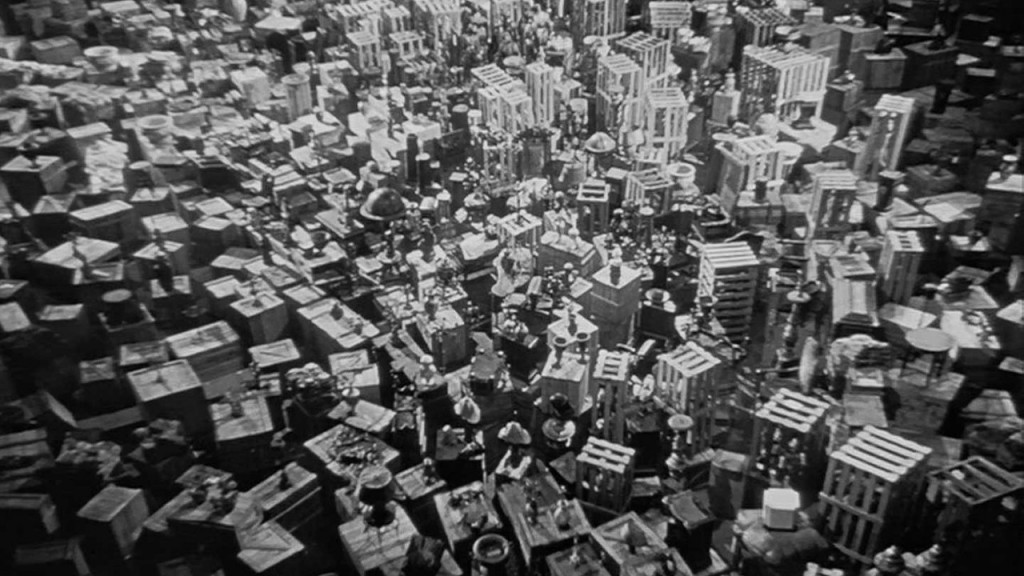
Is Citizen Kane the greatest film ever made? In my opinion, not quite. I think there are other films that can be considered “greater”, depending of course on what your definition of cinematic greatness actually is, but Kane is definitely in the upper echelon of awesome films to come out of the Golden Age of Hollywood. While the background story has, to a certain extent, served to both promote and overshadow the actual film, the film itself is still a stunning work of art that should be witnessed by anybody claiming to be a true film fan. Citizen Kane is truly one of the great films of all time.

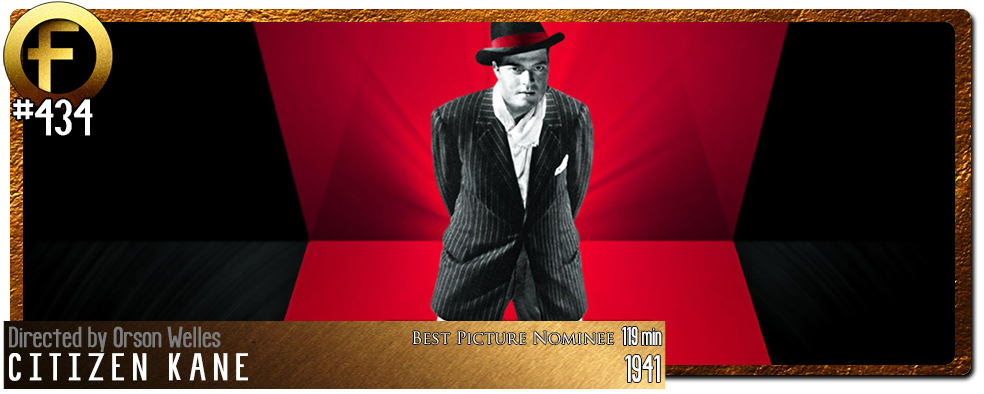
Wow. What can i say? An instant classic. Ambitious in its undertaking, magnificent in its scope, groundbreaking in its skill. What a review!
(Oh yeah, and the movie was halfway decent, too.)
Awesome comment there Al, for a moment I even believed it! 😉
Thanks man, as always, for the props!
Introducing older films to students (or anyone unwilling) is always a hard sell. You definitely have to choose films wisely, slowly easing them down the path of cinema. I've had a lot of teachers that don't understand this and simply push their views out there, which is never going to get anyone on your good side. So yeah, Citizen Kane is one to see after you've already grown an appreciation for the medium, otherwise its importance and power are lost. 2001 is kinda like that too.
I agree Will, Kubrick’s 2001 is a lot like that.
It is easy for teachers who want to teach media/film to young kids to immediately think – Citizen Kane must be the right option. When realistically, looking at narrative or genre or character or whatever you are teaching would be better suited to a film kids understand and perhaps already know about – for example, you could use a Pixar film.
Exactly – choosing a film more suited to the generation of kids you’re teaching would be a far greater tool than simply shoving on a film they see as “old and boring” and have no interest in. Perhaps an essay on the critical dissection of a Michael Bay film would be more productive to a classroom than one about Hitchcock’s use of a single-take camera style in Rope.
Yeah, no film can really live up to hype like the "greatest film ever" but Citizen Kane still holds up admirably. It's such a well-shot film, incredibly so. I haven't seen it in years but the images are so striking and iconic, that they stay with you. Nice review; it's always hard to take on giant films like this. One of these days, I'll get brave enough and bust a review of my own.
He he, I know what you mean, Will. I'm still trying to figure up the courage to tackle Lawrence of Arabia.
Yep – expected to see ten out of ten and you duly delivered Rodney. Now time to read the review…
…excellent review. I wouldn't want to call it the greatest film ever made either because that is a huge statement to make but like you say – it is up there. I watched this at school the first time as part of a course into narrative or something and as a 15-year-old all the education surrounding it put me off. I just wanted action and adventure etc.,
..but I've grown to love the film and I've seen it several times now. A true masterpiece from a master filmmaker.
I really don't know why they bother showing films of this quality to kids at school – especially kids who've been brought up on X-box and High School Musical. The intricacies of Citizen Kane (and other films, such as To Kill A Mockingbird, which was the one we had to watch) are lost on the younger set, I think – I know they were on me. I think it takes a more mature mind to understand and recognise the quality Welles put into this film, and I think the reason a lot of films are now unappreciated is due to exposure to them coming to early, and consequently putting kids off then altogether.
Older films are like a fine wine – they should only be enjoyed by folks old enough to appreciate their subtleties.
I've only seen the first hour of it – not sure why I haven't returned to it. I will someday.
Nice review.
Only seen the first…. what the? Okay, I understand. I watched about an hour of it a whiile back (several years ago) and thought it was an interminable bore (I almost didn't make it past the doco-styled opening, because I thought I'd got the wrong film!) and it was only after I'd matured a little that I re-watched it and reappraised by initial feelings towards it. Boy, am I glad I did!
It's definitely a film you need to be in the mood for, so you can concentrate on it.
Thanks Sam!